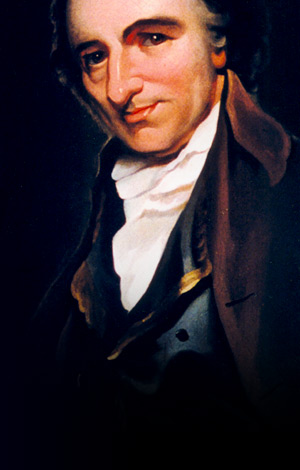Study Guide
GOVERNMENT WITHIN A ROBUST CIVIL SOCIETY
“Some writers have so confounded society with
government as to leave little no distinction between them…Society is produced
by our wants, and government by our wickedness; the former promotes happiness
positively by uniting our affections, the latter negatively restraining our
vices.
Society in every state is a blessing, but government, even in its best state, is but a necessary evil…Here then is the origin and rise of government: namely, a mode rendered necessary by the inability of moral virtue to govern the world; here too is the design and end of government, viz. Freedom and security.”
Common Sense
“The more perfect civilization is, the less occasion has it for government, because the more does it regulate its own affairs and govern itself.”
The Rights of Man
Commentary
For Paine, society begins as a moral compact between man and man. Society becomes a cooperative “workshop for democracy” when each citizen develops the “virtues of the heart”--tolerance and civility for diversity, and a willingness to share one’s time and unneeded resources by attending thoughtfully to the needs of others. Such sociability, voluntary sharing, and “barn-raising” spirit contributes to collective happiness and strengthens public life. Government is needed to contain evil, temper institutional despotism, and insure human rights but must also foster a social matrix for the cultivation of democratically inspired civic virtues among its citizens.
Questions
- What is the role that civil society (neighborhood groups, voluntary associations, free press, schools, and families) must play in developing intelligent habits of democratic participation and public-centered deliberation in public policy? Is this an example of what is meant by the phrase “freedom with fellowship”?
- How can government and civil society work together to jointly create public good? What are the roles citizens can take up in “citizen engagement” or co-planning and with what accompanying responsibilities?
- How might we educate our current and future citizens in reasoning skills for promoting the public good based on the thoughtful application of principles?
- Can the idea of “fellowship” be reflected in political legislatures whose aim is to balance differing views and rival interests so that a sense of fraternity and civic virtues may yet be promoted?


